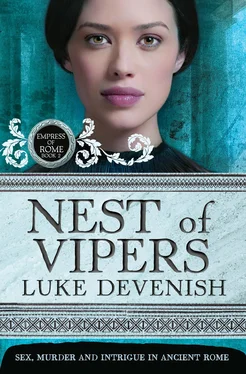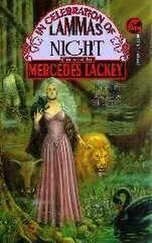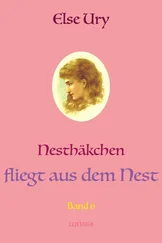Luke Devenish - Nest of vipers
Здесь есть возможность читать онлайн «Luke Devenish - Nest of vipers» весь текст электронной книги совершенно бесплатно (целиком полную версию без сокращений). В некоторых случаях можно слушать аудио, скачать через торрент в формате fb2 и присутствует краткое содержание. Жанр: Исторические приключения, на английском языке. Описание произведения, (предисловие) а так же отзывы посетителей доступны на портале библиотеки ЛибКат.
- Название:Nest of vipers
- Автор:
- Жанр:
- Год:неизвестен
- ISBN:нет данных
- Рейтинг книги:5 / 5. Голосов: 1
-
Избранное:Добавить в избранное
- Отзывы:
-
Ваша оценка:
- 100
- 1
- 2
- 3
- 4
- 5
Nest of vipers: краткое содержание, описание и аннотация
Предлагаем к чтению аннотацию, описание, краткое содержание или предисловие (зависит от того, что написал сам автор книги «Nest of vipers»). Если вы не нашли необходимую информацию о книге — напишите в комментариях, мы постараемся отыскать её.
Nest of vipers — читать онлайн бесплатно полную книгу (весь текст) целиком
Ниже представлен текст книги, разбитый по страницам. Система сохранения места последней прочитанной страницы, позволяет с удобством читать онлайн бесплатно книгу «Nest of vipers», без необходимости каждый раз заново искать на чём Вы остановились. Поставьте закладку, и сможете в любой момент перейти на страницу, на которой закончили чтение.
Интервал:
Закладка:
Moved, Tiberius closed his eyes for a moment as the sun's rays began to glow at the top of the wall. He reached his hand along the seat until his goblet was slipped inside it, placed there by the shivering, naked slave. He sipped, and the Eastern flower kissed him just as the sun did. He opened his eyes again and read on. The tragedy of the boy Hector's choking will never leave me, but the honour of the union between he and my girl only grows, despite his premature death. I have heard that the Divine Augustus, when seeking a first marriage for his daughter, even entertained some thoughts of worthy men drawn from the Equestrians. If this is so, and if a husband is sought for a widow of Caesar's family, then I will make the first request that I have ever made of my Emperor. Please think of a friend who finds his reward simply in the glory of friendship.
Tiberius stopped reading in surprise. Then he carefully reread the sentences. He reached for his goblet as the children reached the end of their song. 'Again,' he commanded them, his eyes on the letter and his voice already slurred with the draught. He tried to free his mind of its clouds, hoping the sun's rays would help him, but the struggle was too much. He let the pleasure claim him and turned his energies to recalling who the widows in his family actually were. His mother was one, he knew; Antonia was another. Were there more?
He returned to the letter. If Caesar grants my request, know this: his family will be made all the safer against the unjust displeasure of Agrippina. Sejanus
Tiberius frowned. Or rather, he thought he should frown, but when the impulse came to do so, he found that his face remained placid in the dawning sun. Yet still the thought to frown was there; something stirred deep within him to prompt it — was it a warning? He couldn't be sure. It wasn't the same as the reactions he had to the long lists of citizens accused of treason; those merely sickened him. This was something else, a feeling far darker. He was reminded of the honk of the sacred geese from the summit of the Capitoline. Those famous noisy geese had once saved Rome from the Gauls with their alarm.
What were his geese telling him, Tiberius wondered. Where, if anywhere, was the threat?
' The matron's words alone are heard…' said a tiny voice in his ear.
Tiberius turned to Thrasyllus in the snow. 'I no longer like you in my garden, haruspex. I no longer like you here at all. What you say has become meaningless. Do not let me find you here when I return to my chair tomorrow.'
Apicata knew the sound of crisp, smooth, quality papyrus when it rubbed against the skin of her husband's rough hands. It was the sound she heard now and it meant he had a letter. There was no other noise to be heard but the dry, soft rustle as he clutched it, worrying the surface with his fingertips. The letter consumed him utterly.
Apicata waited patiently at her loom, her own hands smoothing and tightening the yarn with the bar, crushing it in. She reached for the weights, adjusting them. 'Is there news, husband?'
She sensed his eyes on her briefly before he returned to what he read. Apicata's patience was her strength. After another minute or so she tried again. 'Is it the Emperor who writes? Is he happy with you?'
This time she didn't even sense him looking up at her. The letter held him totally. Apicata rose to her feet and stood still for a moment. When Sejanus made no comment, she crept towards him across the courtyard, knowing where the earthenware pots stood in her path and gliding around them, never missing her step. She reached him and kneeled. 'Is it bad news?' she whispered.
Still Sejanus said nothing, rereading the words.
Her face was at his knees in his chair. Apicata pressed her cheeks against the flesh of them, holding herself there for a moment, until slowly she felt his legs begin to give. She pressed her face further, her lips and eyelashes brushing his thighs. Apicata began to pleasure him, the movements of her tongue and lips so practised now, so automatic, that she didn't need to think or feel or plan. Her ears stayed fixed on his response — the gradual quickening of his pulse and breath, the low, guttural moans that slowly grew from his belly and up into his throat. She lived for his pleasure; she lived to love him.
He gripped her by the hair and tugged her mouth away. She thought it was passion and tried to resist him, clinging with her lips, but he slapped at her head and threw her to the ground. Apicata lay there, dazed, as Sejanus stood up from his chair, twisting the papyrus into a stick.
'Was it bad news, husband?'
He threw the twisted letter into the air, and then turned and left her to her loom.
Apicata knew she had covered every inch of the courtyard, crawling on her hands and knees along the paving tiles, feeling under the plants, inside the ivy, reaching into the branches of the low trees. She raked her fingers through the fishpond, dredging through the weed and mud, but still she couldn't find it. So she began the process again.
It was long after midnight when she finally located the letter, blown into a corner behind a leafless, dormant rose. She snagged her stola on the thorns, pricking her skin and drawing blood. To retrieve the twisted sheet of papyrus she had to thrust her bare hand into the heart of the plant. But just as she had the thing in her fingertips, a gust of wind took it from her grasp. Apicata forced her hand again and again into the midst of the thorns, but she couldn't find the letter.
It was lost.
The nightmare that tormented him was always the same: the golden-haired man cursed him and beat him viciously with the rod and Thrasyllus could not escape, no matter where he crawled or what he said or what he tried to read in the bowels of the bird. And even when he saw precisely what lay ahead for the man — for this golden-haired king — still he was beaten until his every bone was smashed and he was nothing but pulp and mash upon the ground, like the guts of his pigeons. Then the nightmare would end as the golden-haired king left the place of imprisonment and Thrasyllus would wake up weeping and shivering and calling out for the Great Mother, who never came. But this time when the nightmare ended it was different. The Great Mother was with him, here in the snow.
'Ssh,' she soothed him.
His fevered eyes drank in the sight of her. 'Cybele?'
'Ssh,' she said. She laid her hand upon his brow and felt how cold he was — as chilled as stone. Her image began to melt and drip in his gaze.
'Are you really Cybele?'
'Ssh,' she repeated.
Thrasyllus saw in his mind another mother, one lost in the past — a mother who loved him and suckled him. 'You killed her, Cybele.' 'No.' 'You killed my mother… hacked the flesh from her. It was you.' 'Ssh.' Cybele's touch seeped deep inside him, easing the pain, erasing the fear. 'It was another… I never held the blade. Your mother was taken by another one — look inside my heart and see this is true.'
Thrasyllus stared into the Great Mother's eyes, and the rays of perception illuminated what he found there. The goddess spoke the truth. Cybele could not lie to him. His mother had been killed by a lowly slave's hand.
Thrasyllus felt his love for the goddess return.
'You must answer me a question,' Cybele said, stroking his cheek. 'It is not a painful question — it is the same question the slave claims you have already answered for him. But I doubt the answer, you see — it seems so unlikely to me, so impossible.'
Thrasyllus waited.
'Who will be the second king?'
Thrasyllus told her.
Cybele was visibly shocked, thrown by the news that she, as a goddess, should surely already have known. Yet patently she did not.
'So the child will rule,' she muttered to herself. 'The child really will rule.' She was shaken. 'What a thing to give to Rome.' 'They are not the same,' said Thrasyllus. The goddess stopped.
Читать дальшеИнтервал:
Закладка:
Похожие книги на «Nest of vipers»
Представляем Вашему вниманию похожие книги на «Nest of vipers» списком для выбора. Мы отобрали схожую по названию и смыслу литературу в надежде предоставить читателям больше вариантов отыскать новые, интересные, ещё непрочитанные произведения.
Обсуждение, отзывы о книге «Nest of vipers» и просто собственные мнения читателей. Оставьте ваши комментарии, напишите, что Вы думаете о произведении, его смысле или главных героях. Укажите что конкретно понравилось, а что нет, и почему Вы так считаете.












